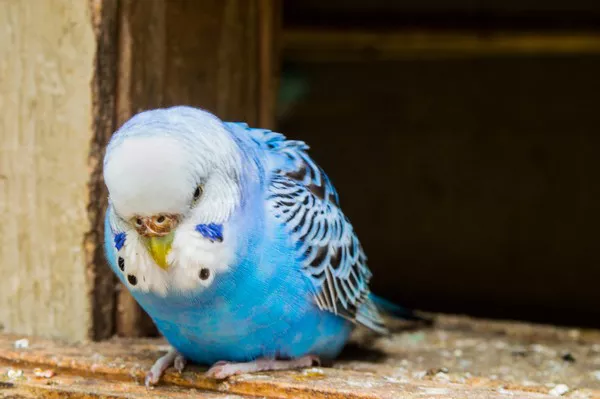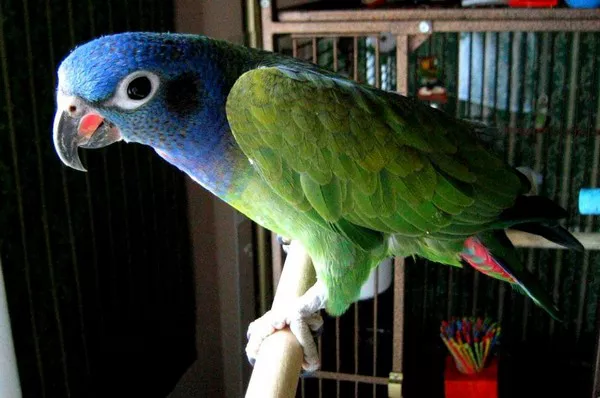Sun conures (Aratinga solstitialis) are small, colorful parrots native to South America, known for their vibrant plumage and engaging personalities. As pets, they have gained immense popularity due to their playful nature and social behaviors. One common question potential owners often ask is whether sun conures are affectionate. This article delves into their social structures, behavior, and the factors that contribute to their affectionate nature, providing a comprehensive understanding of these captivating birds.
Understanding Sun Conures
Origin and Habitat
Sun conures are primarily found in northeastern South America, particularly in regions like Venezuela, Brazil, and Guyana. They inhabit tropical savannas and forest edges, often forming large flocks that provide social interaction and opportunities for bonding.
Physical Characteristics
Sun conures are easily recognizable due to their bright yellow, orange, and green feathers. Adult birds typically measure about 12 inches in length, with a wingspan that can reach up to 18 inches. Their vibrant colors serve not only as a means of attraction among mates but also play a role in social bonding within flocks.
Social Structure and Behavior
Natural Behavior in the Wild
In their natural habitat, sun conures are highly social animals that thrive in flocks. They communicate through a range of vocalizations, including chirps, whistles, and screeches. Their social nature allows them to establish strong bonds with one another, which is critical for their survival in the wild.
Affectionate Traits
Sun conures exhibit several behaviors that indicate affection, such as preening, cuddling, and vocalizations directed toward their companions. These behaviors not only strengthen social bonds but also serve as a form of social grooming that is crucial for their emotional well-being.
Affectionate Behaviors in Captivity
In captivity, sun conures can develop strong bonds with their human caregivers. They often show affection through:
Vocalizations: Sun conures are known for their loud and cheerful calls, which can signify excitement or a desire for interaction.
Preening: Birds may attempt to preen their human caregivers, a behavior that indicates trust and affection.
Physical Contact: Many sun conures enjoy sitting on their owners’ shoulders, cuddling, or engaging in playful activities.
Factors Influencing Affection
Early Socialization
The degree of affection a sun conure displays is heavily influenced by its early socialization. Birds that are hand-raised and frequently exposed to human interaction tend to be more affectionate. Conversely, birds that have limited human contact during their formative months may be more timid or less affectionate.
Individual Personality
Like humans, sun conures have unique personalities. Some may be naturally more affectionate, while others may be more independent. Recognizing these individual traits is essential for understanding how to foster a loving relationship with your pet.
Environment and Lifestyle
The environment in which a sun conure lives plays a critical role in its affectionate behavior. A stimulating environment that includes toys, social interaction, and regular out-of-cage time will promote a more affectionate disposition. Conversely, a lack of stimulation can lead to boredom and behavioral issues, which may affect the bird’s ability to bond with humans.
Building a Strong Bond with Your Sun Conure
Establishing Trust
Building a trusting relationship with your sun conure is essential for fostering affection. This can be achieved through:
Consistent Interaction: Spend time with your bird daily, allowing it to become comfortable with your presence.
Positive Reinforcement: Use treats and praise to reward affectionate behavior, encouraging your bird to engage more with you.
Respecting Boundaries: Allow your sun conure to initiate contact, ensuring that it feels safe and secure.
Creating a Stimulating Environment
A stimulating environment is crucial for a sun conure’s emotional health. Provide a variety of toys, perches, and opportunities for exploration. Engage in interactive play, such as teaching tricks or providing puzzles, to keep your bird mentally stimulated.
See Also: Why Does My Sun Conure Bob His Head?
Recognizing Body Language
Understanding sun conure body language can help you gauge their mood and affection levels. Signs of a happy and affectionate bird include:
Relaxed posture: Wings held close to the body and a relaxed stance indicate comfort.
Bobbing head: A sign of excitement or affection, often accompanied by vocalizations.
Fluffed feathers: A relaxed, comfortable bird may fluff its feathers, signaling contentment.
The Benefits of Affectionate Relationships
Emotional Well-being
A strong bond between a sun conure and its owner can lead to increased emotional well-being for both. For the bird, affection from its human companion can reduce stress, anxiety, and boredom. For owners, the joy of interacting with an affectionate pet can enhance their overall quality of life.
Social Interaction
Sun conures are social creatures, and their affectionate nature can enhance their interactions with both humans and other pets. A well-socialized sun conure may serve as a bridge between its owner and other pets, promoting harmony within the household.
Common Misconceptions About Sun Conures
“Sun Conures Are Too Noisy”
One common misconception is that sun conures are excessively noisy. While they are indeed vocal, their sounds can be playful and expressive rather than constant squawking. With proper training and socialization, sun conures can learn to communicate effectively without overwhelming their owners.
“Sun Conures Are Not Affectionate”
Another misconception is that sun conures are inherently unfriendly. While their natural behavior in the wild may seem more focused on social interaction with other birds, their ability to form strong bonds with humans should not be underestimated. Each bird is an individual, and with proper care and interaction, many sun conures can become incredibly affectionate companions.
Conclusion
In conclusion, sun conures are indeed affectionate creatures, capable of forming strong bonds with their human companions. Their social nature, early socialization, and individual personality all play crucial roles in determining the level of affection they display. By providing a stimulating environment, establishing trust, and understanding their unique behaviors, pet owners can cultivate a loving and rewarding relationship with these vibrant birds.
Understanding and nurturing the affectionate potential of sun conures not only enhances the bond between pet and owner but also enriches the overall experience of pet ownership. As with any pet, the key to a fulfilling relationship lies in patience, empathy, and a commitment to their well-being.
Related Topics:
























